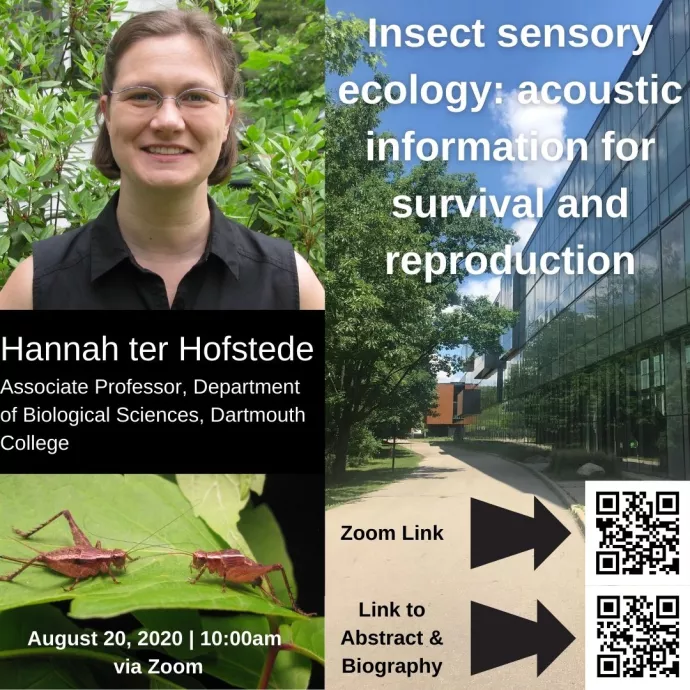
Seminar: Prof. Hannah ter Hofstede, Darmouth College

When: August 20, 2020
Time: 10am
Zoom link - check out poster
About Dr. Hannah der Hofstede:
Hannah ter Hofstede is a sensory and behavioral ecologist. Her research investigates how physiological, ecological and evolutionary processes influence information acquisition for reproduction and survival in insects. Hannah completed her PhD in 2008 in the lab of James Fullard at the University of Toronto Mississuaga, studying antipredator defenses in a variety of insects. Her first postdoctoral position was at the University of Bristol, UK working with Marc Holderied on predator detection and avoidance in moths. In 2010, Hannah received an NSERC Postdoctoral Research Fellowship, which she took to Cambridge, UK to work with Berthold Hedwig on the evolution of communication in lebinthine crickets. In 2013, Hannah started as an assistant professor at Dartmouth College, NH, USA, where she teaches undergraduate courses in physiology, animal communication and field biology and advises graduate students and postdoctoral fellows.
Brief abstract:
Animals rely on their senses to encode information about environmental cues crucial for survival and reproduction. Examples include cues produced by predators that trigger escape behavior and communication signals that attract potential mates. Animals do not experience these environmental stimuli in isolation, meaning that selection on sensory systems and behavior by predators can affect communication systems and vice versa. In this seminar, I present research investigating interactions between predator detection and mate‐finding communication systems in orthopteran insects (crickets and katydids). Specifically, lebinthine crickets have a novel communication system that likely evolved due to sensory exploitation of an acoustic startle response, and Neotropical katydids show reduced signaling and proactive defenses in response to intense predation pressure by eavesdropping bats. Finally, I will describe some applications of bioacoustic monitoring for insect conservation.
